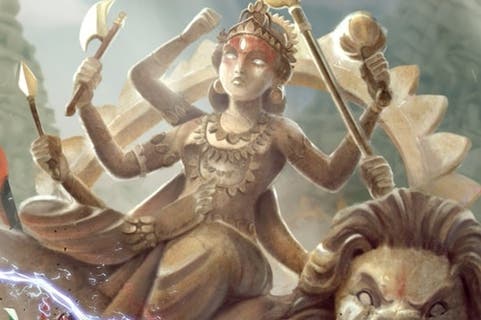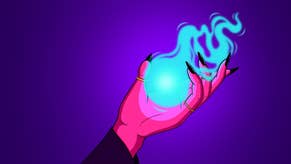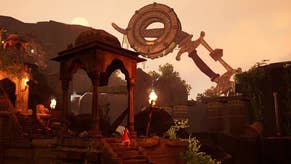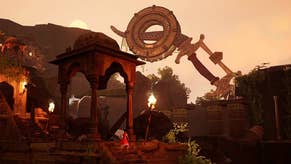Raji and the rise of Indian gamedev
How a nation of outsourcing companies is finding its feet.
Wondering why there aren't more Indian-made video games? In a way, you've been playing them for years without realising it. Faced by a massive rise in AAA development budgets since the early noughties, international publishers like EA typically outsource work to skilled but lower-wage workers in less affluent regions.
Many of India's biggest studios derive most or all of their income from overseas contracts. Lakshya Digital has produced art for ZeniMax Media, Disney and Valve, hiring mentors in the US to walk its staff through the finer details of properties like The Elder Scrolls, while Starbreeze-owned Dhruva Interactive's partners include Playground Games, Remedy and Rare - it recently created assets for the latter's piratical Xbox One title Sea of Thieves. As with the sight of a "made in China" label on a Union Jack T-shirt, it's peculiar and a little depressing to think that games you might deem inextricable from a certain culture are in fact crafted with the help of people in farflung countries, willing to do much the same work for considerably less.
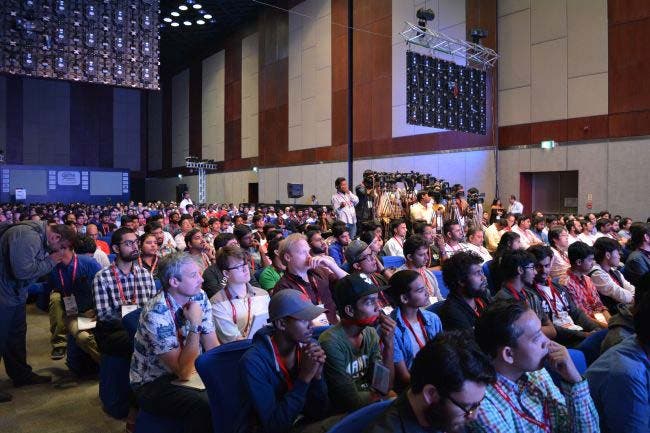
Indian developers are hungry for more, however. The country's games market has exploded in the past decade, with mobile games especially reaping the benefits of rising living standards while consoles struggle in the face of software piracy and a scarcity of specialist retail. Casual and gambling games account for a large proportion of revenue, but Indian gaming is increasingly diverse, with single player games and more obscure genres such as real-time strategy beginning to pick up pace. In the absence of local funding opportunities for more ambitious experiences, smaller teams are availing themselves of self-publishing programs online to pitch their games worldwide.
The games in question are as lively and quirky as anything you'll find on Early Access or Itch.io. Highlights include Lovely Planet from TequilaGames, a bouncy, candy-coloured shooter that resembles a Proteus-themed Quake mod, and Pyrodactyl's Good Robot, a 2D roguelike with swirling, layered undersea visuals. Among the projects that leans more obviously on its cultural heritage is the upcoming Raji: An Ancient Epic, in which a young tribe girl quests to save her brother from the demon lord Mahabalasura, fighting through palaces, castle and gardens inspired by the medieval fortresses of Rajasthan. Created by Pune-based Nodding Heads and slated for PC, Xbox One, PS4 and Switch, the game combines familiar action-RPG mechanics such as evasive rolls, ability points and AOE moves with weapons and monsters inspired by Hindu and Balinese mythology.
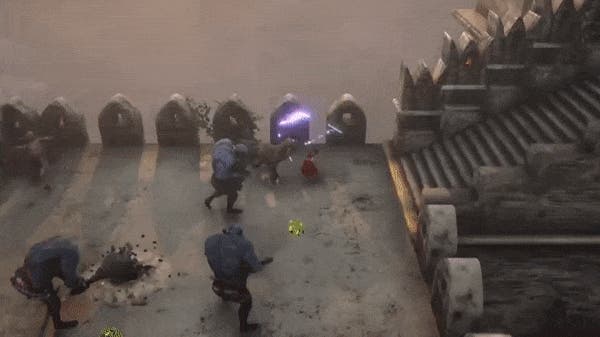
So far it's a joy to behold, from the sunlit domes and turrets that disappear into its misty skylines to the nimble, flowing movements of Raji herself - a puny but tenacious figure in red, her braid whipping behind her as she slices away at tusked ogres and squat toad creatures with a glowing trident. The tale of its development, meanwhile, offers a window on the shifting, diffuse state of Indian gamedev, with a team made up of artists of varying experience levels from across the world.
Studio co-founders Shruti Ghosh, Ian Maude and Avichal Singh met at a game design school, DSK International Campus, in 2014. Armed with a background in oil painting, Ghosh was an art development manager for EA till 2016, following a series of roles at Indian developers, but felt her potential was going to waste in the AAA industry. Singh is relatively junior, a student at the time he ran into Maude and Ghosh, but has already worked on some major properties. While at Zynga across 2015-2016, he designed a top-selling FarmVille asset for Cecil, the South African lion infamously gunned down by an American recreational hunter in 2015.
British-born artist Maude, meanwhile, is the team's grandpa. His career dates back to the heyday of Stainless Software, creators of the Carmageddon franchise; more recently, he worked on the prototype for the BAFTA-winning hit Everybody's Gone to the Rapture. Maude re-enlisted with the RAF Reserve Regiments across 2013 and 2015 and was on the verge of being deployed to Afghanistan, but had to let the opportunity go after sustaining a serious injury. During his recuperation he was offered the chance to lecture at DSK IC and the rest, as they say, is history.
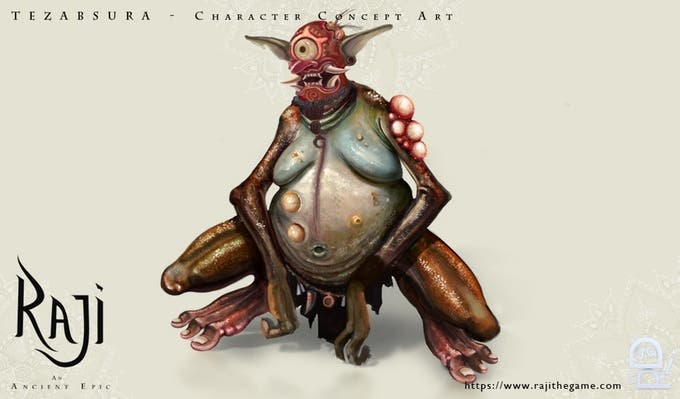
Raji's development is strongly multicultural - it has grown to include a Greek composer, Linus Jelos, and a Brazilian VFX artist, Rafael Morais, both working remotely - but where many Indian-made titles riff on classic Western or Japanese titles to woo veteran gamers in richer countries, this one is devoted to its region of origin. Avichal Singh conceived of a game featuring medieval Indian architecture following a 2013 trip to Jaisalmer, the legendary "golden city" at the heart of the Thar Desert; the story also includes environments based on the bat-haunted Bundi Palace, an elegant 17th century fort that appears to be carved from the hillside it stands on. Raji's lurid, grimacing monster designs draw upon study of Balinese demon masks, while the elemental powers you'll wield are blessings awarded (for a price) by the Hindu gods.
The game's most striking articulation of its cultural inheritance is its handling of mandalas - ornate geometrical compositions from Hinduism and Buddhism that chart cosmic knowledge or social frameworks. In Raji, they serve as puzzles, emergent narrative devices and the basis for what could almost be a kind of meditation. The simplest mandala puzzle might see you restoring a symmetrical pattern to proceed; more complex varieties are animated, and tell stories about the universe or characters. The most elaborate of them all are full-blown 3D layouts, travelled across and restored piece by piece. It recalls how in certain traditions mandalas are drawn in water colours on consecrated ground, retracing the design in a performance of the idea it represents.
Having spent several years discussing the game, Singh, Ghosh and Maude finally quit their jobs to work on Raji full-time in January 2017. In the months since they've released a 20 minute demo on Steam, showcasing Raji's combat system and an early environment. Indie luminaries such as Tom Bithell have praised the team's efforts, as have the curators of the Square Enix Collective. But Raji has struggled to make headway on Kickstarter, falling £90,000 short of its £120,000 funding goal at the time of writing with 15 days to go. If the game fails to meet the target, Nodding Heads may be forced to abandon it.
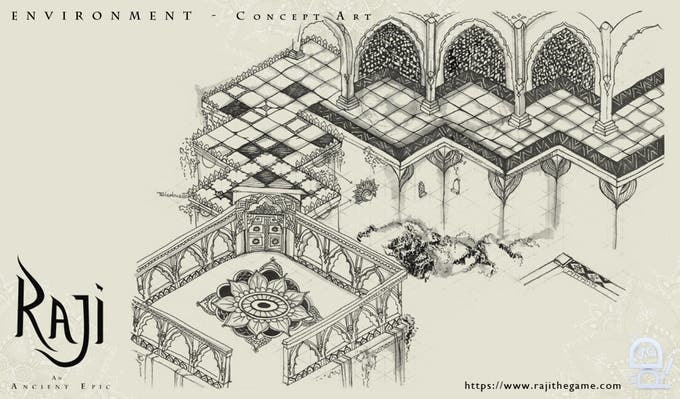
It would be a sad end for a project that speaks to both the inventiveness of a community too often regarded as a back-up workforce, and the art, culture and history of a country that is seldom represented in video games. "This is not just a game for us," Singh tells me by email. "We wanted to set an example because India is predominantly looked upon in the West as a source of cheap outsourcing and call centres. Everyone on the team wanted to make a difference, and we've given everything, monetarily and emotionally. As an indie Indian studio we have gone through a year of struggle to make sure that this project sees the light of day. We truly believe that Indian and Balinese mythology has a richness of knowledge and storytelling which is relatively untapped and unexplored.
"Since the games industry is still very new in India, we've had no help from the government, from banks or investors. Hence, to sustain ourselves throughout these 12 months, we've had to pool our savings, sell an apartment and take out personal loans from our families. Literally, blood, sweat and tears have been shed. And now the project's future is in the hands of the community. The last ten months have been emotional to say the least, and we're very proud of what we've achieved given the difficulties we've faced. Creating a 20-minute, fully functional demo is no mean feat, and every member of the team has grown in the process, and those who have much less experience have shown their true spirit, which has been extremely humbling. We hope our effort can be seen - what we've achieved in such a short period with our desire to put India on the gamedev map."
